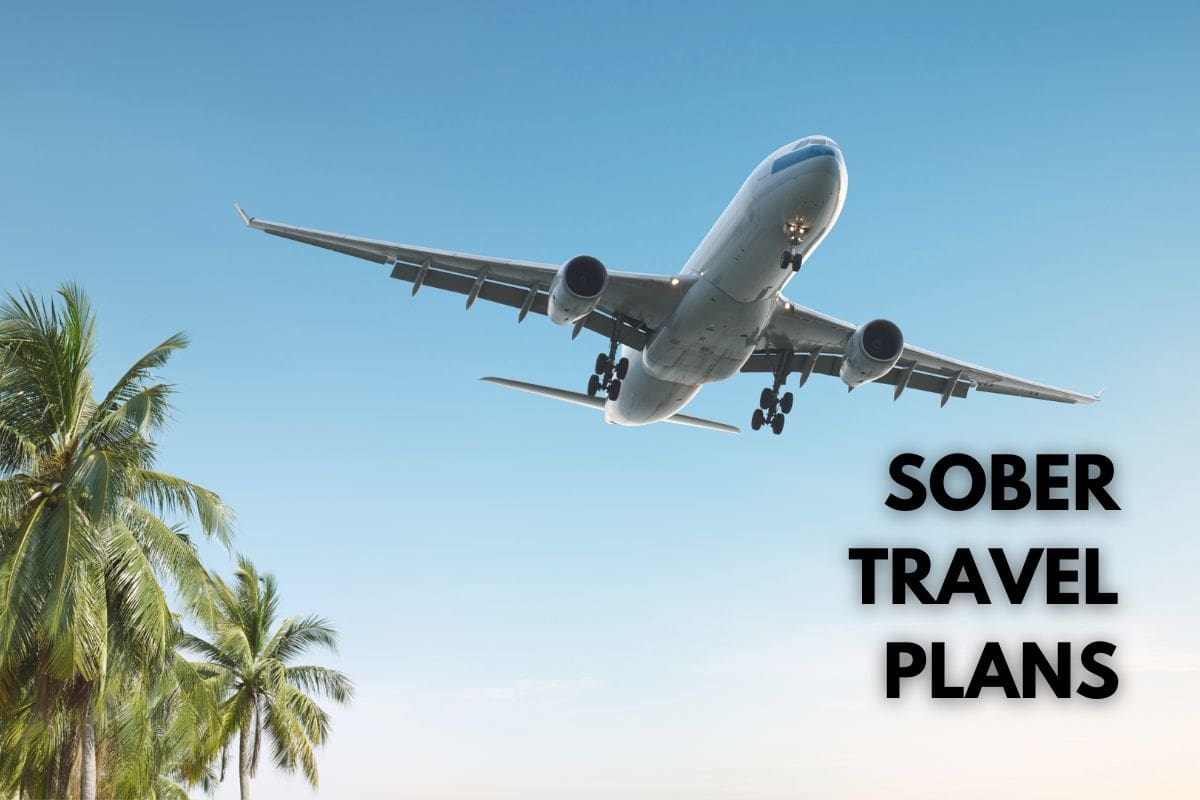Traveling while trying to stay sober can be a challenge. Parties and other social outings are frequent triggers for alcohol or drug use, whether with friends or family members. There’s also the added stress of taking care of yourself. At the same time, being without the things and routines you typically have to help with maintaining your sobriety can also be triggering.
But despite the potential pitfalls, sober travel is still possible and even fun if you approach it with the right attitude and follow these tips:
1. Be honest about your intentions.
One of the first steps to long-term recovery is being honest with yourself. Ask yourself, “do I see myself enjoying this trip without using substances?” “What will I gain from this trip? “How much fun do I expect it to be?”
Also, consider whether, deep down, you are using this trip as an excuse to relapse into substance misuse. Or if you’re ready to start enjoying sobriety.
These can be challenging questions to ask yourself, but they are necessary. Learning to be very honest with yourself regarding substance use will help you recognize and avoid the risk of relapse.
2. Set goals and plan: create a sober travel plan before your trip.
Planning is key: it will help you stay on track and avoid making rash decisions. Knowing where and how long you’ll be gone, you can plan while being aware of your challenges and cravings.
Here are some things to consider as you plan for your next vacation:
- What do I want to get out of this trip?
- How much time will I be able to dedicate to planning?
- Who can help me with my planning process?
- Should I look out for local support group meetings?
- Do I have to tell my sponsor where I’m going?
- Am I bringing and planning enough to prevent relapsing?
Anytime you’re in a new environment, your sobriety can be tested. That’s why it’s important to visualize your goals ahead of time and create a safer itinerary for yourself.
3. Research ahead of time.
You can find alcohol and other substances pretty much everywhere, but you can also find AA meetings and alcohol-free venues everywhere. Research which hotels don’t have a bar. Find coffee shops and alcohol-free bars/restaurants. Locate the closest AA or NA meetings. Try your best to avoid places that can become triggers and push you to relapse.
4. Find a sober travel buddy or travel group.
Finding like-minded travel companions is one of the essential steps in creating a sober travel plan. In particular, you will want to find people interested in staying sober and having fun. They don’t necessarily have to be a sober travel group, but they must understand your needs and help you achieve your sobriety goals.
5. Prepare to say “No.”
It’s important to recognize that there will be some situations where you have to say “no.”
If you’ll potentially be in a situation that involves alcohol or drugs, mentally prepare yourself to reject it, even if it’s just one glass of wine with dinner.
You don’t have to explain yourself to anybody but yourself: you’re choosing your sobriety—no need to provide reasons to other people.
If you are traveling alone or with people who are not in recovery and do not understand addiction or recovery, it is best to avoid social situations where substances will be available. Focus on things that will make your trip fun and healthy.
4. Be aware of your triggers.
Stress is one of the most common triggers, and the logistics of traveling can be very stressful. Find ways to redirect your cravings, like drinking coffee instead of a beer. Ultimately, only you can say what your triggers are and how you can manage them, so be aware of them and plan to handle them ahead of time.
5. Set a date to come home.
It’s good to know when you’ll be back to your routine to mentally prepare for how long you’ll be making adjustments while you are away.
Being prepared will help you navigate the challenges of traveling while sober. With the right strategies, planning, and mindset, it can be one of the most rewarding experiences of your life.
Next time you plan a vacation, use these tips for creating a sober travel plan. With enough planning, you can learn to travel without turning to substances and still have the time of your life.

































